- Türkiye’s geopolitical realignment seeks greater rapprochement with the West;
- The country has undergone significant changes in relation to Russia and the EU, including support for Sweden’s entry into NATO;
- The change in Turkish foreign policy may impact regional geopolitics and its future vis-à-vis the European Union and the United States.
Türkiye‘s new geopolitical stance has attracted international attention. The growing reconciliation with the West, represented by recent foreign policies, signals a possible significant change in the country’s relations, especially with the European Union and the United States.
Turkish President Recep Tayyip Erdoğan has sought to balance interests and strengthen his global standing. The application for integration into the European Union suggests its resumption in the search for integration to the bloc, which may involve economic reforms and greater political flexibility.
Turkiye’s history of geopolitical balance
With a past marked by political transformations and international alliances, Türkiye has played a significant role in the global balance of power, especially in relation to its participation in the North Atlantic Treaty Organization (NATO) and, more recently, its relations with Ukraine.
Its participation in NATO dates back to 1952, when the country became one of the members of the alliance, just three years after its founding. This military alliance, created after World War II, had as its main objective to promote cooperation and mutual defense between the democratic countries of Europe and North America.
Ankara’s inclusion in NATO has strengthened the alliance’s strategic position in the Eastern Mediterranean and Middle East region.
Over the next few decades, Türkiye played a vital role in the alliance, contributing its geographic location, well-trained armed forces, and military infrastructure. Furthermore, the country’s presence allowed NATO to extend its influence into the Black Sea area, a region of great strategic importance and home to the Soviet Black Sea Fleet.
However, Türkiye’s membership in the alliance has not always been without its challenges. Over the years, political disagreements and internal issues have led to tensions between Ankara and other alliance members.
It can be seen that in the five years before the war in Ukraine, relations between Ankara and Kiev strengthened, with Türkiye seeing the partnership with Ukraine as an opportunity to achieve Turkish President Erdoğan’s goals of transforming the country into an influential regional power.
For Ukraine, Türkiye has become one of the few partners willing to cooperate seriously in the defense industry, something of utmost importance for Kiev since 2014.
Despite the strengthening of this partnership, both did not consider the other as a long-term strategic ally. Their relationship has focused on specific issues such as the manufacture of combat drones, transport infrastructure, the grain trade and security issues in the Black Sea.
Russia, on the other hand, has always been seen by Türkiye as an ally of greater economic and security value compared to Ukraine.
In pursuit of its national interests, Ankara was willing to ignore the opinion of Kiev and its western allies.
This was evident when Türkiye became involved in Russia’s TurkStream pipeline project, bypassing Ukrainian territory in the delivery of Russian gas to Europe. Furthermore, Erdoğan acquired S-400 missile systems from Moscow, despite criticism from the United States and NATO.
Because of this relationship, Türkiye has remained the friendliest of NATO countries towards Russia since the start of the Russian invasion of Ukraine.
Unlike other western countries, Ankara has not imposed sanctions or canceled flights between the two countries, maintaining close cooperation with Moscow on several issues. This position adopted by Türkiye, however, raised questions in Ukraine, which previously considered Ankara as an important partner.
Türkiye’s recent change in attitude
In May 2023, Ankara held presidential and parliamentary elections, where the current president, Erdoğan, managed to be re-elected, surprising everyone with his recent measures in foreign policy.
In July, Erdoğan presented significant changes in relation to two fundamental issues: Sweden’s accession to NATO and the search for rapprochement with the West, after years of little attention to the accession negotiations to the European Union (EU).
Erdoğan stated that he would consider supporting Sweden’s application to join NATO in return for progress on Türkiye’s entry into the EU.
This approach was quickly seen as a political ploy to win concessions from the West, such as US F-16 fighter jets and modernization of the EU-Türkiye Customs Union and visa liberalization, as Ankara has repeatedly condemned the rise in Schengen visa applications rejected by Turkish citizens, requiring visa-free travel for nationals in Europe.
However, this shift in stance may reflect Erdoğan’s desire to mobilize the Turkish electorate, capitalizing on yearnings for European recognition and encouraging a possible strategic return to partnership with the West.
Türkiye’s interest in joining the EU was halted in 2016 due to heavy internal repression after a failed coup, giving European leaders a reason to effectively halt talks.
On July 15, 2016, Turkey faced an attempted military coup to overthrow the government of President Recep Tayyip Erdoğan. The attempt was a direct affront to the democratically elected government and caused panic and uncertainty across the country.
The Turkish government, led by Erdoğan, quickly responded to the coup with an intense crackdown, which resulted in a large-scale purge of alleged followers of the movement of Fethullah Gülen, an exiled US cleric who was accused of masterminding the coup.
After 15 July, the Turkish government began a series of measures to further consolidate its power. Erdoğan took advantage of the situation to implement a series of authoritarian reforms, undermining the independence of the judiciary, restricting press freedom and silencing dissenting voices.
These changes have been perceived with concern by many EU countries, who have seen Turkey’s departure from the core democratic values that are requirements for membership of the bloc.
In addition, non-governmental organisations, activists and journalists faced significant restrictions, which created concern among EU countries regarding the deterioration of civil liberties and human rights in the country.
As a result, Turkey’s EU accession process has stalled, with little significant progress since then.
Failed coup d’état in Russia as catalyst for Turkiye’s change of heart
Recent events, such as the attempted coup in Russia in June 2023 and the crisis in Ukraine, have been pivotal moments for Türkiye’s foreign policy, putting the country in a delicate position vis-à-vis NATO and the Kremlin.
The Turkish president faces the challenge of balancing his geopolitical interests, seeking to maximize the advantages in his relations with both parties.
This pragmatic stance by Türkiye places it in a unique strategic position within the military alliance, making it the only NATO nation whose actions are closely monitored by the Kremlin and whose words are heeded by Putin.
Erdoğan’s approach to Putin is evident, seeking to preserve Turkish national interests while maintaining a close relationship with Moscow.
In recent months, Türkiye has shown a more openly “pro-Ukraine” stance, which can be interpreted as a reflection of the perception of Russia’s “diminished military reputation”, especially after the coup attempt led by Yevgeny Prigozhin, leader of the Wagner mercenary group.
However, even with these changes in its foreign policy, relations with Russia are unlikely to undergo abrupt changes.
Türkiye will continue to play a crucial role in conflict resolution and peace agreements in the region, due to its proximity, power and relations with Kiev and Moscow.
Ankara will likely continue to seek to “fight with the winners”, maintaining its position of relevance to both and seeking to secure the best results for its national interests.
7 Recent Foreign Policies That Show Growing Reconciliation With The West
Driven by Russia’s declining value as an ally and persistent tensions in Turkish-Chinese relations, it has led the country to consider a strategic return to the West, seeking to maximize its geopolitical interests in a volatile global context.
Some of these policies are:
- The return of members of the Azov battalion to Ukraine;
- The search for the normalization of relations with Greece;
- The change in the country’s monetary policy;
- Authorization for Sweden to join NATO;
- The former permission for Finland to join NATO;
- Türkiye’s mediation in the Grain Agreement;
- Türkiye’s application for EU integration.
One of the most notable demonstrations of this shift was Erdoğan’s decision to return captured members of the controversial Azov Battalion to Ukraine, breaking an earlier promise made to Putin. This significant move signaled a new stance towards Moscow, making clear Türkiye’s willingness to strengthen ties with other international actors.
Furthermore, Erdoğan has shown openness to friendlier relations with Greece, and has responded to economic pressures from the West, reversing years of disastrous monetary policy. These gestures have been well received by Western countries, creating opportunities for rapprochement.
One of the key points in this realignment is the support given by Türkiye to Sweden’s candidacy to join NATO. This posture indicates a possible recalibration of the tense relations with the West, seeking to balance its position between the Western bloc and Russia. Erdoğan also sees this opening as an opportunity to strengthen his position in international politics.
Another relevant factor was the permission granted by Türkiye for Finland’s entry into NATO, which represented a defining moment in Turkish foreign policy. After a period of veto exercised by Ankara, the change shows an effort to strengthen its position within the military alliance and demonstrates a revision in its policies regarding to the West.
Türkiye also played a key role in negotiating the Grain Agreement between Ukraine and Russia, which expired in June 2023. This issue is of great geopolitical importance as it involves crucial commercial and political interests for both parties.
Russia seeks to use the deal as a tool of political pressure, while Ukraine seeks to diversify its trading partners and lessen its dependence on Russia.
Erdoğan looks forward to Putin’s visit in August, where they will discuss the renewal of the grain deal, among other issues. The Turkish leader is in an advantageous position to persuade Russia to resume implementation of the agreement, something the leaders of other countries have yet to achieve.
The resumption of Türkiye’s integration into the European Union also represents an important milestone in Turkish foreign policy. Although there are doubts about the intentions behind this request, it reflects a diplomatic strategy of seeking concessions and a stronger position on the international scene.
The geopolitical importance of the new Turkish rapprochement with the West
The recent shift in Türkiye’s stance towards the West signals a possible significant shift in the country’s foreign policy.
This realignment has the potential to have significant consequences, especially for US foreign policy and Turkish-European relations.
For Washington, a less antagonistic Türkiye could strengthen the US-Türkiye “Strategic Mechanism“, a list of bilateral priorities that includes cooperation in NATO, coordinated anti-terrorism operations and stability in the Aegean and Black Sea shipping lanes, especially in relation to global grain shipments threatened by the war in Ukraine.
As for Europe, a realignment of Türkiye could mean greater cooperation in the European Green Deal and in the management of refugee flows.
Such cooperation could also accelerate Türkiye’s ability to become a European “energy hub“, as well as enable Europe to benefit from Türkiye’s manufacturing and agricultural sectors through revised customs agreements.
Domestically, Türkiye’s renewed interest in joining the European Union may indicate Erdoğan’s willingness to seek the political center again. This could be associated with possible support for new economic and anti-corruption reforms in the country, as well as a possible easing of Erdoğan’s political repression.
Such strategic shifts from a policy of fear to one of aspiration have been effective in securing public consent and disorienting opposition both in Türkiye and elsewhere.
Although the next five years still raise fears for many Turks, the mere possibility of a change in direction is encouraging. However, Erdoğan is a political chameleon with an instinct for self-preservation, and he could still surprise us.
The recent gestures of openness and realignment indicate a concrete possibility of reconciliation with the western bloc, while preserving its strategic positions on the global stage.


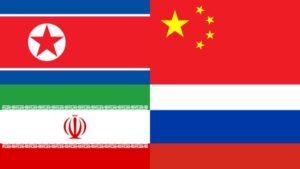
日軍第731部隊旧址_PB121201-e1713902593308-300x224.jpg)


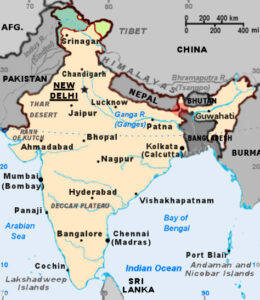
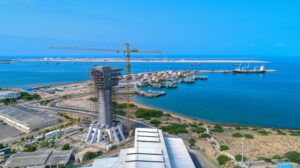


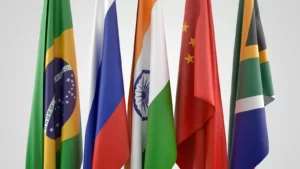
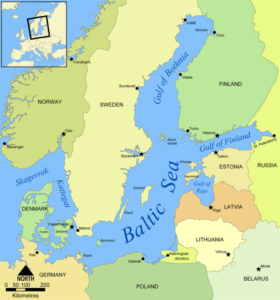

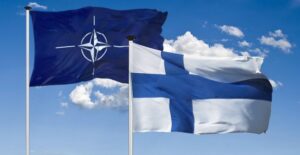

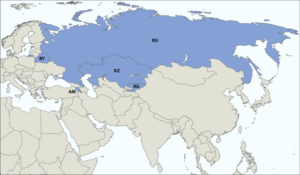




[…] European Union (EU), formerly known by different names and different structures, has taken a complex and […]